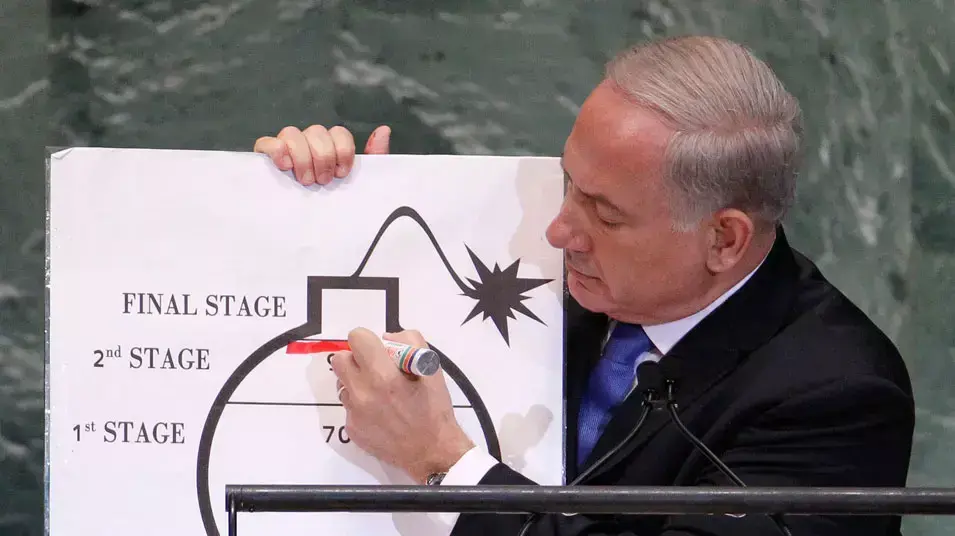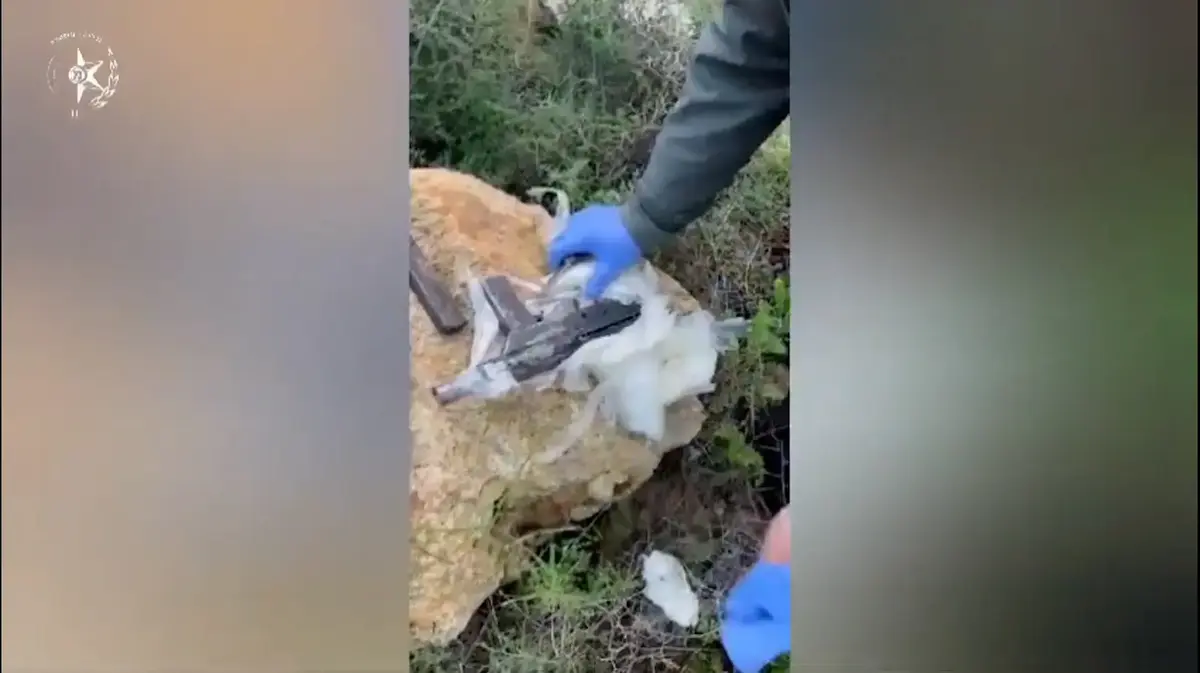- Click to share on Facebook (Opens in a new window)
- Click to share on Twitter (Opens in a new window)
- Click here to share on LinkedIn (Opens in a new window)
- Click to email a friend (Opens in a new window)
The selective attack ordered by President Donald Trump against Iran's ruthless intelligence chief adds to his most dangerous commitment to date with the lives of other people and his own political future.
By killing Qasem Soleimani in Iraq, Trump put the United States in an open conflict that could lead to a total war with Iran of serious economic and national security consequences in the United States and the rest of the world.
As of now, and given Iran's easy access to soft targets, the Middle East and even Europe have suddenly become less safe places for Americans, including their troops, that Trump might be tempted to bring back to House.
With only two days after the year of his re-election, Trump, who rains the entanglements in the Middle East, has plunged the United States into another, with great and unknown consequences. It is a challenge for a presidency that has already alienated half of the country, after his political trial and an attitude without a break in office. It might be impossible for him to gain support from the country to weather the crisis. It has also stirred the strategic and moral expectations of the United States, ordering the assassination of a high-ranking foreign leader of a nation with which the United States is not formally at war, although Washington is considered a terrorist.
The repercussions of your action on Thursday will last for years.
"Iran never won a war, but never lost a negotiation!" Trump wrote Friday morning in a tweet that did not help calm critics who are concerned about the depth of their strategic thinking.
It is too soon to know if Soleimani's death will weaken Iran and improve the US strategic position. whether it will cause regional conflagration or how it will affect Trump's political perspectives and legacy.
But surely Iran will consider the murder of one of its most important political leaders as an act of war, so its revenge is likely to be strong and lasting.
"There will definitely be unwanted consequences, and to begin with, I believe that the security of our embassies will need to be well reinforced," former US ambassador to Iraq Christopher Hill told CNN.
“Iran will not stay idly by. I think there will be a reaction and I'm afraid there might be blood in some places. ”
Trump supporters celebrate the hard hand of their commander in chief. They emphasize that Soleimani orchestrated the death of hundreds of US soldiers in militia attacks during the Iraq War. But recent history is marked by spectacular actions by the United States that unleashed conflicts in Iraq and Afghanistan and caused an initial delight to later become political and military disasters over time. A total conflict with Iran would be much more complicated than those two wars.
Trump's attack could be the most important calculated US action in a 40-year Cold War with revolutionary Iran. It is the biggest bet of the foreign policy of the United States since the invasion of Iraq.
Secretary of State Mike Pompeo told CNN that killing Soleimani "saved American lives" and relied on information of "imminent" threats of an attack in the region. Trump echoed what his secretary of state said later Friday morning, tweeting that Soleimani "was conspiring to kill many more" Americans.
But Pompeo refused to give details. In such a serious crisis, the situation will be more difficult for a government that has become accustomed to misinforming and lying. The elimination of the most powerful political figure in Iran after the supreme leader Ayatollah Ali Khamenei also ends the chimera that this White House does not follow a regime change strategy.
Given Soleimani's frequent trips to Iraq, Syria and other areas in the Middle East, this is not the first time he was in the US. But former presidents, perhaps aware of the consequences, chose not to attack. In the next few days, the government will have to explain why it acted now.
This act may also end, at least for a generation, with any hope that the United States and Iran can resolve their differences through dialogue. There will be no desire or political capital even for Iranian officials often misleadingly described as moderates to sit with their American counterparts.
When Trump took office, there was no immediate crisis with Iran. The Islamic Republic complied with the nuclear agreement it reached with the Obama administration, although it had not stopped developing missiles or ceased in what the United States considers evil actions in its own neighborhood.
But by breaking the agreement, strangling the Iranian economy and now killing Soleimani, Trump has taken over the confrontation that results. It's a huge bet because history indicates that presidents who risk their careers in the political jungle of the Middle East always lose.
The attack reflects Trump's growing taste for exercising military power, exacerbates a tendency for uncontrolled presidential authority and forges the image of ruthless vigilante he likes.
The question now is whether Trump, an erratic and inexperienced leader who disdains advice and rarely thinks a step further, is prepared to handle such a dangerous and lasting crisis.
And his government, which seems determined to overthrow the Iranian regime but is unable to publicly devise a plan for later, is it ready to handle an Iranian reaction in the region and beyond?
Tweeting the photo of an American flag after the attack in which Soleimani died, but not explaining to the Americans what is happening can be a bad sign about it.
But despite all the instantaneous analyzes of sudden Iranian affairs experts that have emerged on Twitter, no one can be sure of what will happen. That is what makes Trump's attack so unpredictable and potentially dangerous.
With its vast network of partners, from Hezbollah to Hamas, Iran has the ability to quickly and harshly attack US allies such as Israel and Saudi Arabia, and the assets and personnel of the United States in its region. It could affect the global economy by attacking oil tankers in the Strait of Hormuz. US officials and major military commanders may also be exposed when traveling abroad. Iran could exploit Lebanon's fragile political pact and cause shock throughout the region.
US troops in Iraq, Syria and Afghanistan seem especially vulnerable to the action of Iran's allied forces. Politically, the Baghdad government may have no choice but to ask US forces to leave after the attack in a scenario that could effectively lead the country to Iran's influence or revive its terrible civil war.
The murder of Soleimani is a strong symbolic blow to Iran. It was the godfather of the Middle East who engineered the enormous regional influence of the country.
Pompeo said his death will be received by Iraqis and Iranians as a coup for freedom and a sign that the United States is on their side. But developments in Middle Eastern politics rarely reflect the optimistic pronouncements of US officials.
Did the United States inflict a strong strategic blow on Iran?
Analysts will study whether the death of Soleimani removes coherence from the Quds force of the Iranian Revolutionary Guard Corps and attenuates its regional power at least at the beginning.
Tehran's strategic response is not clear. While it could lash out, a wave of attacks against American soldiers or terrorist attacks in other places can lead to a direct conflict with a more powerful rival, the United States, that it does not want.
It is not certain that he will respond immediately. Perhaps it is more beneficial to make life impossible for the United States and its citizens in the region with a slow fire strategy.
Trump could be especially exposed to a military or economic reaction from Iran that questions his judgment given his accelerated re-election career.
His action against Iran could also change the dynamics of the presidential electoral race at home, by opening a lane for Democrats to run as candidates opposed to war, a position that helped the last two presidents, Trump and Barack Obama - to be chosen
Democratic candidate Bernie Sanders posted a video on Friday promising to do everything possible to "avoid a war with Iran."
"Because if you think the war in Iraq was a disaster, I assume that the war in Iran would be even worse," said the Vermont senator.
And Democratic leader Joe Biden immediately put himself in commander-in-chief mode, putting himself in a position to obtain political gains if Trump's company in Iran fails.
The former vice president referred to Soleimani's bloody history, but added that "President Trump has just thrown a dynamite cartridge into a gunpowder barrel."
"He owes the American people an explanation of the strategy and plan to keep our troops and diplomatic personnel, our people and our interests safe, both here and abroad, and our partners throughout the region and beyond." he added.
Qasem Soleimani




/cloudfront-eu-central-1.images.arcpublishing.com/prisa/VGTRLOM77NUMO33M7L4E3PJN2I.jpg)









